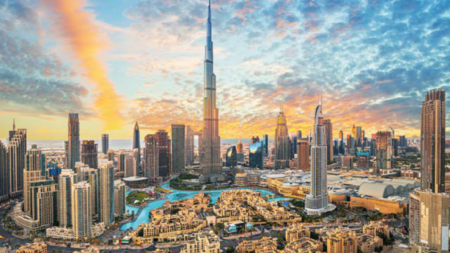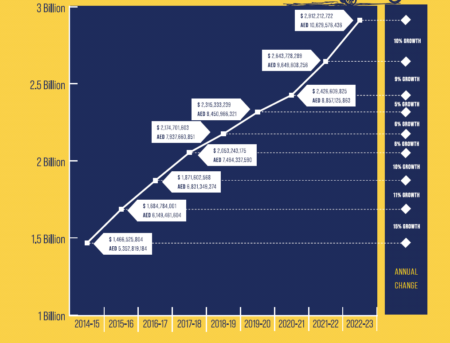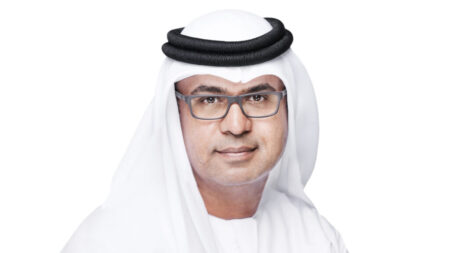Destination Dubai

Mohammed Darwish reports on opportunities in an emirate which welcomes UK independent schooling
The independent school sector in Dubai is diverse, with 216 schools offering 18 different curricula to more than 326,000 students from 185 nationalities, facilitated by 20,000 teachers.
The Knowledge and Human Development Authority (KHDA), part of the government of Dubai, was established in 2007 to regulate and direct the growth and quality of independent education in Dubai.
Since that time, the independent school sector has grown with the population of Dubai, which expanded from 2.2 million residents in 2013 to 3.55 million by the end of last year. The number of independent schools has increased by 91% (124 schools opened from 2007/08 to 2022/23), with student enrolment growing by 85% (176,473 students in 2008/09 to 326,001 in 2022/23) translating to year-on-year average increases of 5% and 4.5% respectively.
Dubai is becoming an international education hub and the diversity of curricula enable an education sector that is world-class and globally minded. Among the 18 different curricula offered by Dubai independent schools are those from the UK, US, India, France, Germany and Australia, to name a few. The International Baccalaureate is also a popular curriculum here.
British education is highly sought-after. The National Curriculum of England and Wales has consistently proven to be the most popular, offered by 37% of schools and educating 40% of all independent school students.
GROWING FAST
Dubai currently has nine branch schools with international home campuses – seven British, one from India and one American – including Kent College, Royal Grammar School, Guildford, North London Collegiate School and Brighton College. The first branch school, Repton School Dubai, opened in 2007, while a new branch school has since opened every academic year from 2016. Combined, these schools have more than 9,600 students enrolled.
KHDA aims to attract high-quality international branch schools. It maintains close contact with the home campuses of branch schools to ensure that the quality of education they offer in Dubai is comparable to that in their home countries, particularly with regard to ethos, student outcomes, student-teacher ratios, curriculum delivery and general policies.
LONG-TERM PLAN
The Dubai Economic Agenda (D33), a 10-year strategic growth plan for Dubai, was launched this year by Sheikh Mohammed bin Rashid Al Maktoum, vice-president and prime minister of the United Arab Emirates and ruler of Dubai. D33 has twin objectives of doubling the size of Dubai’s economy within a decade and consolidating its position among the top three global cities. It aims to increase independent sector investment to 1 trillion dirham over the next decade and support a near doubling of Dubai’s population by 2040. The growth stimulated by D33 will lead to demand for more school seats, providing abundant opportunities for investors.
Revenue generated by Dubai’s independent schools has grown by an average of 10% per annum over the past eight years. The estimated total revenue of Dubai’s independent school sector has doubled in eight years, from just under $1.5 billion per annum in the 2014-15 academic year to more than $2.9 billion in 2022-23. In line with D33 targets, this growth is expected to continue on a similar trajectory over the next 10 years, doubling again in the next eight years and increasing supply twofold.

Growth of independent schools and students in Dubai since 2007-08
THROUGH LOCKDOWN
Dubai’s independent school sector experienced growth throughout with the Covid-19 pandemic, with the opening of six new schools and an overall revenue increase of 5%. In the 2021-22 academic year, 12 new schools opened, and growth in revenue nearly doubled. Thanks to cooperation between school leaders and government authorities, schools were able to continue operating throughout the pandemic, initially switching to distance learning, then offering a blend of distance and face-to-face learning. All schools returned to full-time face-to-face learning in October 2021.
An area of significant future growth in Dubai’s independent education sector is in early childhood education (newborn- to-six years old). Approximately 70% of children in this demographic are not yet enrolled in an educational institution, providing ample opportunity for investors to step in and meet supply gaps as demand increases. In December 2020, Dubai passed a resolution which enabled schools to open early childhood centres under their current school permit. Since then, 11 schools have done so.
KHDA also works closely with the Knowledge Fund, a Dubai government entity which manages land and building assets specifically allocated to the independent education sector. KHDA also maintains close contact with land banks and private landlords.
Dubai’s economy is growing. Government leaders have set out far- reaching strategic plans, reflected in KHDA’s approach to encouraging greater investment in high-quality independent education. As more families move to Dubai, its independent school sector will become a centre for world-class education, recognised by investors and operators for its growth opportunities and transparent regulatory environment, and valued by families for its diversity and quality.

Revenue growth of independent schools in Dubai since 2014-15
Mohammed Darwish is chief executive officer of permits and compliance for the Knowledge and Human Development Authority.

Mohammed Darwish
